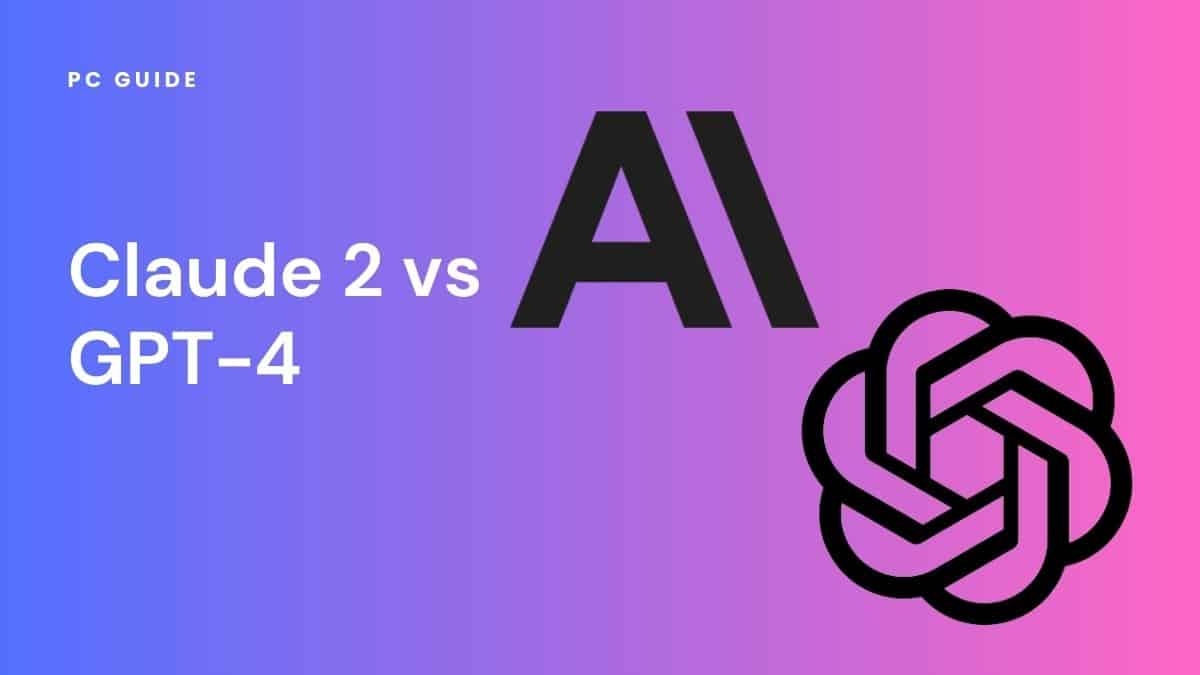Comparison of Claude 2.1 and GPT-4 AI Models in 2024
Core Concepts
Anthropic's Claude 2.1 and OpenAI's GPT-4 are powerful AI models with distinct features, but GPT-4 stands out due to its extensive capabilities and user popularity.
Abstract
In the comparison between Claude 2.1 and GPT-4, both are top-tier NLP models with significant advancements from their predecessors. While Claude 2.1 focuses on ethics and safety, GPT-4 boasts a massive parameter count and diverse applications through plugins. Despite Claude 2.1 excelling in specific tests like the bar exam, GRE writing, and coding, GPT-4's overall output quality surpasses it due to substantial R&D funding from OpenAI. Pricing-wise, Claude 2.1 is more affordable than GPT-4 but lacks some functionalities present in the latter model.
Customize Summary
Rewrite with AI
Generate Citations
Translate Source
To Another Language
Generate MindMap
from source content
Visit Source
www.pcguide.com
Claude 2.1 vs GPT-4 - which AI model is best in 2024?
Stats
Claude 2.1 costs $11 per million tokens.
GPT-4 has a context window of 32k.
Claude 2.1 can understand up to 75,000 words.
Quotes
"Anthropic have used the term ‘constitutional AI’ to describe the safety principles the model runs off."
"GPT-4 is a model with 1.76 trillion parameters, using the Mixture of Experts architecture."
Key Insights Distilled From
by Gloria Coles at www.pcguide.com 08-14-2023
https://www.pcguide.com/apps/claude-2-vs-gpt-4/
Deeper Inquiries
What ethical considerations differentiate Claude 2.1 from GPT-4?
Claude 2.1 and GPT-4 differ in their approach to ethics and safety in AI development. Anthropic, the creator of Claude 2.1, has emphasized the concept of 'constitutional AI' which prioritizes AI safety principles inspired by the UN's Declaration of Human Rights and guidelines from companies like Apple. This focus on ethical considerations aims to ensure a higher degree of safety and accuracy in the output of Claude 2.1.
On the other hand, while GPT-4 is a powerful model developed by OpenAI, it may not have as explicit a focus on ethical principles as Claude 2.1 does with its constitutional AI framework. This could potentially lead to differences in how these models handle sensitive information or make decisions that impact users.
How does the pricing disparity between these models impact their accessibility?
The pricing difference between Claude 2.1 and GPT-4 can significantly impact their accessibility to users. Claude 2.1 is comparatively cheaper than GPT-4, costing $11 per million tokens compared to ChatGPT's subscription-based pricing structure which requires users to pay for certain tiers like ChatGPT Plus for advanced capabilities.
This pricing gap means that individuals or businesses with budget constraints may find Claude 2.1 more accessible due to its lower cost per token usage compared to the subscription fees associated with using GPT-4 through ChatGPT's premium features.
Ultimately, this pricing disparity can influence user adoption rates based on affordability and budget considerations, making one model more appealing than the other depending on financial resources available.
How might the concept of 'constitutional AI' influence future AI developments?
The concept of 'constitutional AI,' as seen in Anthropic's approach with Claude 2.1, could have significant implications for future developments in artificial intelligence technology.
By incorporating principles rooted in human rights declarations and industry guidelines into AI systems, developers can prioritize ethical considerations such as fairness, transparency, accountability, and privacy protection.
This emphasis on building ethically sound AI models could lead to increased trust among users and regulators regarding AI applications.
Furthermore,
the integration
of constitutional
AI frameworks
could shape future regulations around
AI development,
ensuring that new technologies align with established ethical standards.
Overall,
the adoption
of constitutional
AI principles has
the potential
to drive responsible innovation
and promote
the development
of beneficial
and trustworthy
AI systems for various industries
and societal contexts
0
